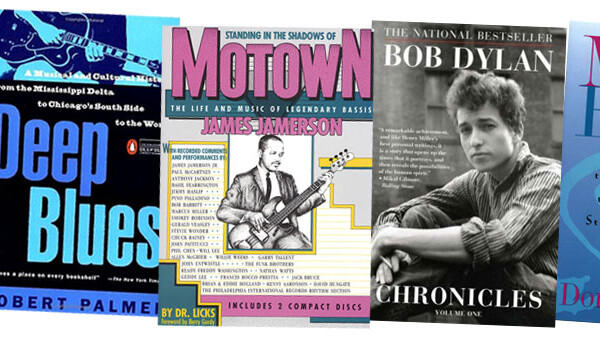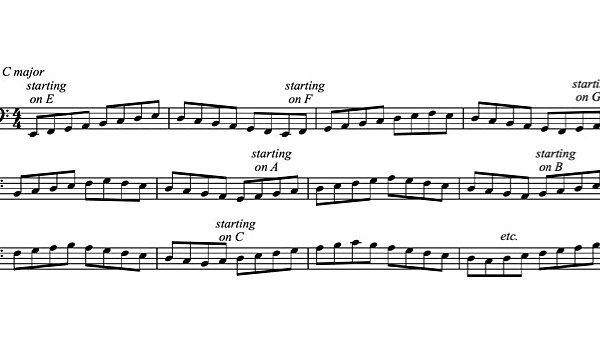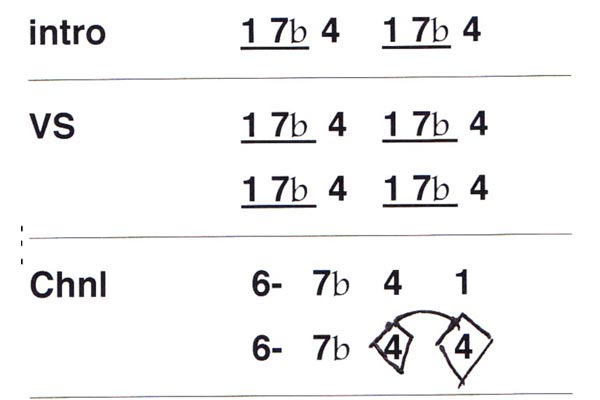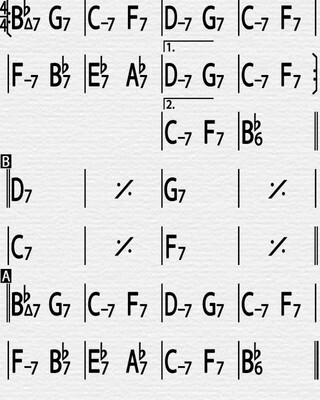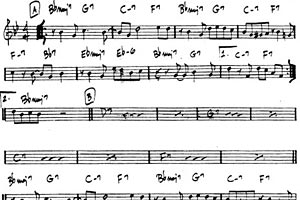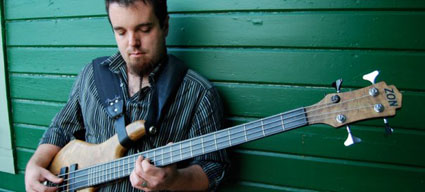Reading Archives - Page 2
Read Up! How Reading at Your Leisure Can Double as Practice Time (Part 1)
They say that the first step to recovery is admitting you have a problem. Well then, here goes… I’m a bookworm. So much so that it takes an enormous amount of will power to pry myself away from a good novel before being late to work. It’s easy to get caught up in a story, to lose track of time,...
Progressive Scales: A Bass Player’s Guide to Learning Scales and Improving Reading Ability
I’ve written in the past about the importance of scale work to solidify instrumental technique (see the Lowdown archives for those columns and more). If we are new to learning a particular scale it is probably wise to start by playing from root to root (e.g. C-C in C major) until we are comfortable. This may prove helpful at first,...
Getting Started with the Nashville Number System
Q: I am classically trained, so I’m used to Roman numerals to designate chords (I, IV, V7, etc.). I have become aware of lead sheets using numbers 1, 4, 5’ 1/5). Are you aware of any music I could download that uses this system? A: What you’re referring to is the Nashville Number system. The good news is that it’s...
Progressions: A Guide to Making Practice Productive and Fun
Q: I’m just now three weeks in to my bass lessons so I apologize for the “newb” question. Where can I go to find songs in a specific chord progression that I can play along with? For instance, I’ve learned 12 bar blues in G Major. Now I’m doing web searches to find tunes I can apply what I’ve learned....
Reading Requirements: Bass and Treble Clef?
Q: I can already read treble clef fairly instinctively, having played the clarinet for years. I started playing jazz (on bass) a few months ago, and now can find my way around most lead sheets, but my question is: should I bother to learn bass clef, when treble clef feels more natural to me? I rarely have a need to...
Improving Your Sight Reading: A Guide to Better Reading on the Bandstand
Q: I’m at the point where I’m handling lead sheets better on gigs, but I sometimes get lost and/or second guess myself, usually resulting in me getting lost. Do you have any tips for becoming a good sight reader? A: Reading chord charts, and especially written notation, is one of the most useful tools you will develop as a working...
The Reading Hurdle and How to Jump It
Q: I’m working on being a more fluent sight-reader. I can read notes and their values but it takes me a while to transfer that to the instrument. Any advice on how to most effectively improve? A: Good for you for devoting time to this worthwhile endeavor! Learning to read music is much like learning to read a spoken language....
Reading a Lead Sheet – A How To Guide
Q: Do you know how to read a lead sheet? What is a good way to learn how to play with a lead sheet? A: Learning to navigate a lead sheet is one of the most useful and important things a working musician must get comfortable with. While lead sheets seem to baffle many musicians who are unfamiliar with them,...
